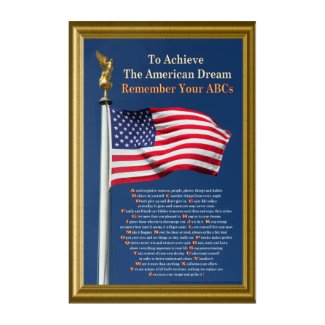EXCERPTS: NEW YORK – Yet another Obama relative is about to surface in the United States to cause the president grief over the credibility of key aspects of the autobiography that helped propel him to the White House, “Dreams from My Father: A Story of Race and Inheritance.”
Mark Obama Ndesandjo, Barack Obama’s Kenyan half-brother, plans to release Sept. 16 his own autobiography, “An Obama’s Journey: My Odyssey of Self-Discovery across Three Cultures,” published by Globe Pequot Press.
In an advance copy of the 374-page memoir obtained by WND, Ndesandjo describes his relationship with his half-brother as distant and strained.
“How could the beliefs he had clung to for decades, the entrenched admiration of an adult for his father, be in any way altered by the views of a brother he hardly knew?”
‘To me my father had always been dead’
Ndesandjo writes graphically of his father’s proclivity for domestic violence.
“We Obamas have big hands,” he wrote.
“They can be used to create or to debase. My hands enable me to comfortably reach across twelve keys and play piano well. My father would use his big hands to knock my mother down when he came home from a night of drinking. I would move protectively toward her and clutch her legs, crying. I know now why I mostly remember her legs, not her torso, or even her face.”
He writes of being woken up as a child in the middle of a Kenyan night:
“When I was abruptly woken up, I would see light streaming in around the sides of the door. There would be thumps and yells, often followed by the sound of my mother screaming in pain or anger. Once I heard a loud crash and rushed to the door of the living room. By the orange light I saw my mother on the floor and my father standing over her, his hands clenched.”
“How could the beliefs he had clung to for decades, the entrenched admiration of an adult for his father, be in any way altered by the views of a brother he hardly knew?”
‘To me my father had always been dead’
Ndesandjo writes graphically of his father’s proclivity for domestic violence.
“We Obamas have big hands,” he wrote.
“They can be used to create or to debase. My hands enable me to comfortably reach across twelve keys and play piano well. My father would use his big hands to knock my mother down when he came home from a night of drinking. I would move protectively toward her and clutch her legs, crying. I know now why I mostly remember her legs, not her torso, or even her face.”
He writes of being woken up as a child in the middle of a Kenyan night:
“When I was abruptly woken up, I would see light streaming in around the sides of the door. There would be thumps and yells, often followed by the sound of my mother screaming in pain or anger. Once I heard a loud crash and rushed to the door of the living room. By the orange light I saw my mother on the floor and my father standing over her, his hands clenched.”
The memories of domestic violence haunt Ndesandjo even now.
“Now as an adult, when I try to remember more, it becomes painful for me and I close my mind. I can only imagine how it must have felt for a child, any child, to have been unable to protect the ones he loved the most. Every blow my father gave my mother I felt, and each time it seemed to shatter the safe world I was trying to construct for myself, through refuge in study or play.”
Ndesandjo writes compellingly of his father’s downward spiral working as a bureaucrat in the Kenyan government.
“By the end of his third marriage, Barack Obama Sr.’s once-bright spark had decayed into smoldering ashes,” he said.
“Under normal circumstances, my father’s brilliance would have propelled him to a magnificent, perhaps glorious, career. However, the nepotism and tribalism that were rife in the young republic of Kenya combined to raise obstacles in his path; his tactlessness and flamboyant behavior, plus the scars left behind by his own traumatic upbringing did the rest. The government jobs he was offered became more and more inconsequential.”
In one particularly insightful passage, Ndesandjo copes with the impact his white, Boston-bred mother and African father had on shaping his own psyche.
“His [Barack Obama Sr.’s] self-hatred and tendency toward self-sabotage was passed down and became part of my identity,” he confesses.
“My mother’s lily-white skin and my father’s ebony-black visage come to symbolize an eternal incompatibility in my mind’s eye. For a long time I hated to have anything to do with what my father represented, whether it was him personally, or even the positive aspects of African culture. In violent reaction to him, I turned passionately toward Western culture and music, which brought me a measure of solace.”
READ MORE SEE PHOTOS->







